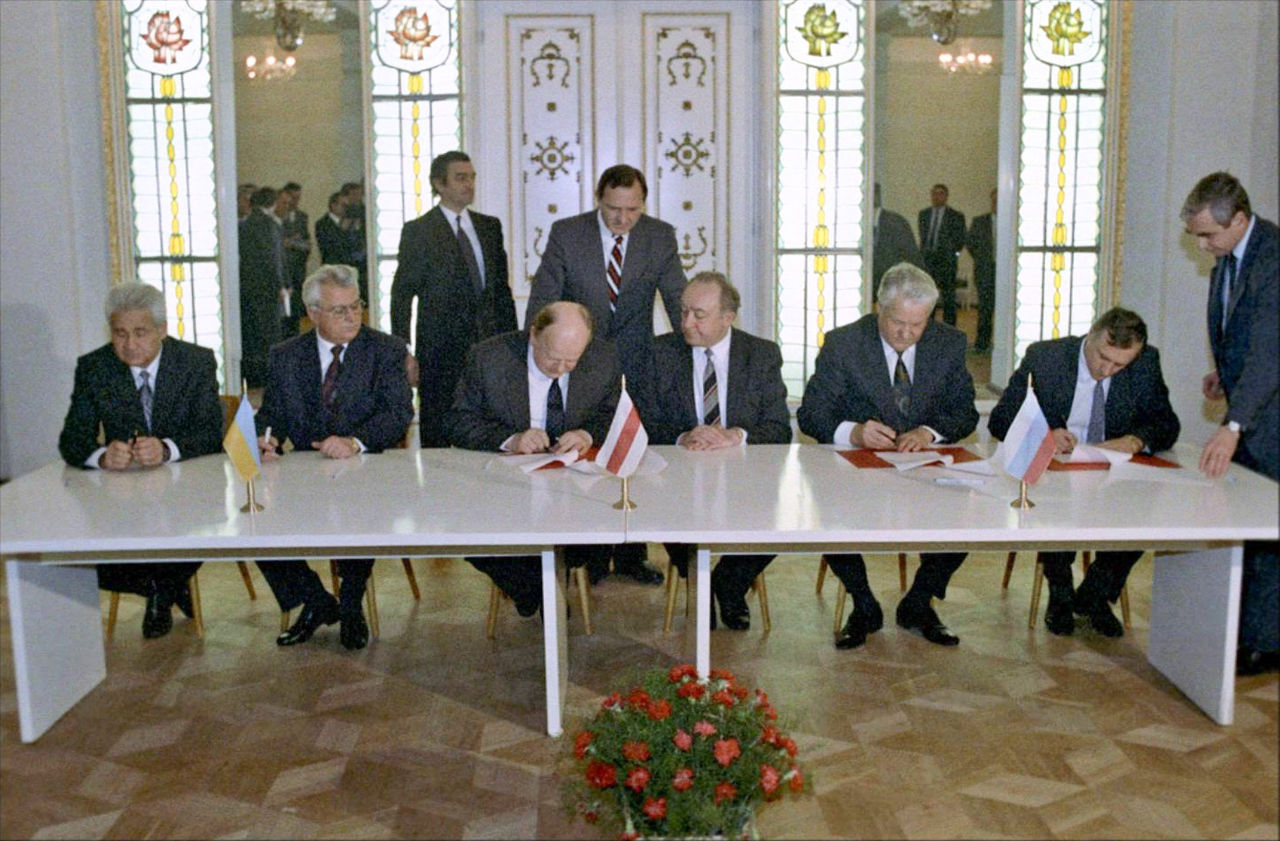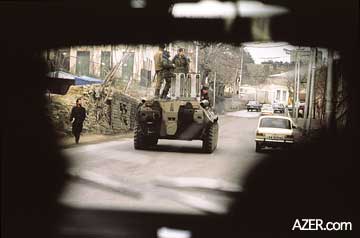Twenty-seven years ago on December 8, 1991, the presidents of the RSFSR, the Belarusian SSR and the Ukrainian SSR signed the Belavezha Accords that annulled the 1922 Soviet union treaty and thus put a de jure end to the de facto disintegration of the USSR which had taken place following the August 1991 coup attempt.
This anniversary is not one Russians generally mark especially as Vladimir Putin has described the disintegration of the Soviet Union as “the greatest geopolitical catastrophe of the 20th century.” But it was “marked” as it were this year by Aleksey Kudrin’s suggestion that if Russia doesn’t change course, it will disintegration just like the USSR did.
The head of the Russian Audit Chamber said, Interfax reports, that “if Russia is not distracted from foreign policy successes and does not devote attention to international problems, the resolution of which would lead the country to genuine greatness, then it could go along the path which led to the disintegration of the USSR.
Ever more Russian analysts and politicians, especially among the opposition, are saying much the same thing; and Kudrin’s words are significant only because of his high rank. But they like the predictions of many others reflect a fundamental misunderstanding of the situation, one that needs to be cleared up if one is to understand what is likely to happen in the coming months.
And that is this: the Russian Federation, however much Putin and some others might like it, is not the Soviet Union; and its approaching end – and that its end is approaching there can be little doubt – will not be like the end of the USSR. It will be far more difficult for the peoples involved and likely far more violent as well.
The Soviet Union ended peacefully for three major reasons, none of which is true in the case of the Russian Federation now.
First, the republics had more or less legitimately elected leaders while the Soviet Union did not. As a result, there were ready-made entities for the Soviet empire to disintegrate into. As a result of Putin’s policies, the leaders of the republics are probably even less legitimate than he is, being appointed by the Kremlin rather than chosen by the people.
And Putin’s regime is far more like the August putsch plotters than that of Mikhail Gorbachev. The current Kremlin leader is prepared to drown the country in blood to prevent its disintegration.
In the end, he is unlikely to be able to stop the fissiparousness of the regions and nations now within the borders of the Russian Federation from having its way; but Putin will ensure that those leaving will pay a far higher price at least for as long as he can.
But there are at least three other reasons why the approaching end of the Russian Federation will be different than the end of the USSR.
First, the most important players in the coming drama are likely to be regions rather than republics, given that the autonomous republics have only about a fifth of the population rather than the half the union republics did in 1991.
Instead, the country is likely to disintegrate along still-to-be established regional lines within a fragmenting Russian nation; and the process of drawing those lines will be difficult and likely bloody as well. (On that issue, see this author’s “Regionalism is the Nationalism of the Next Russian Revolution”.)
Second, the international environment is different. There is even less support for national self-determination in the West now than there was in 1991, and there is even more fear of what could happen if control of the Russian nuclear arsenal becomes an open question. As the Soviet Union headed toward collapse, many in the West feared “a Yugoslavia with nukes.”
Now, such fears are far greater and more justified given the increasing divides within the West, the absence of a paramount power prepared to intervene to say when the process is over, and the likelihood that terrorist groups or some rogue states may seek to acquire those weapons, making Western opposition to any change more likely if ultimately ineffectual.
And third – and this may be the most important thing of all – the collapse of the USSR was largely contained within its borders. The coming disintegration of the Russian Federation won’t be. As the Russian empire within those borders falls apart, the Russian empire beyond those borders will be drawn in whether it wants to or not.
These things do not mean that the Russian Federation will not fall apart: the forces moving in that direction are too great to prevent the demise of the last empire. But they do mean that it will be different and more dangerous – and those concerned about the peoples now living in that empire and hoping for a better future must begin by acknowledging that reality.
Continuing to say that the coming demise of the Russian Federation will be just like that of the Soviet Union is in fact dangerous because it will distract attention from the real problems this cataclysmic event will entail and almost certainly guarantee that the peoples of the empire, their neighbors and the entire world will suffer more than need be.
Further Reading:
- Moscow paper puts up and takes down article saying disintegration of Russia is ‘inevitable’
- Five common notions about Russia’s disintegration all defective, Shtepa says
- Western leaders again more afraid of Russian disintegration than of Russian threat, Kasparov says
- Belavezha Accords didn’t destroy the USSR: it had already ceased to exist, Shtepa says
- Belavezha Accords are not just about the past





